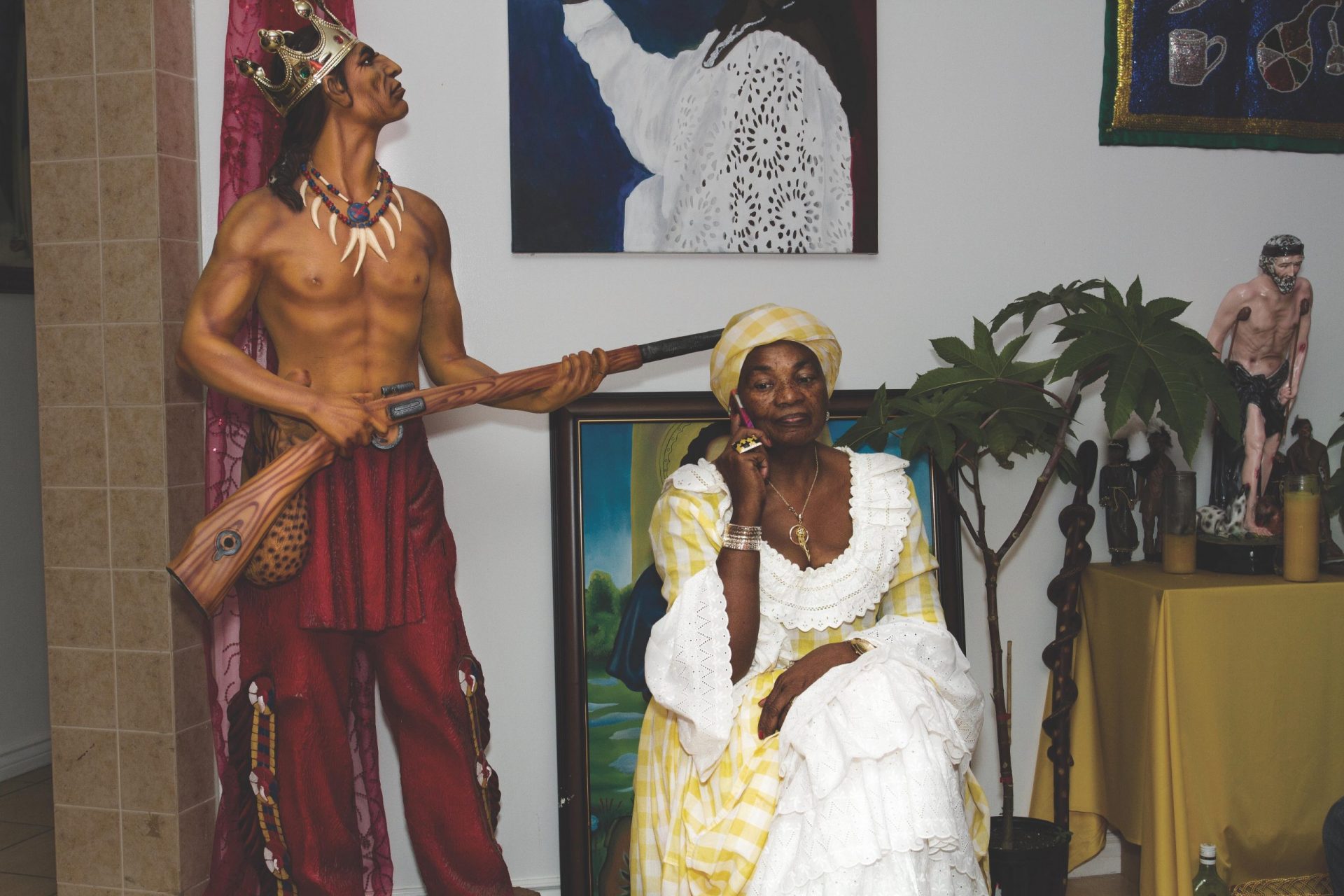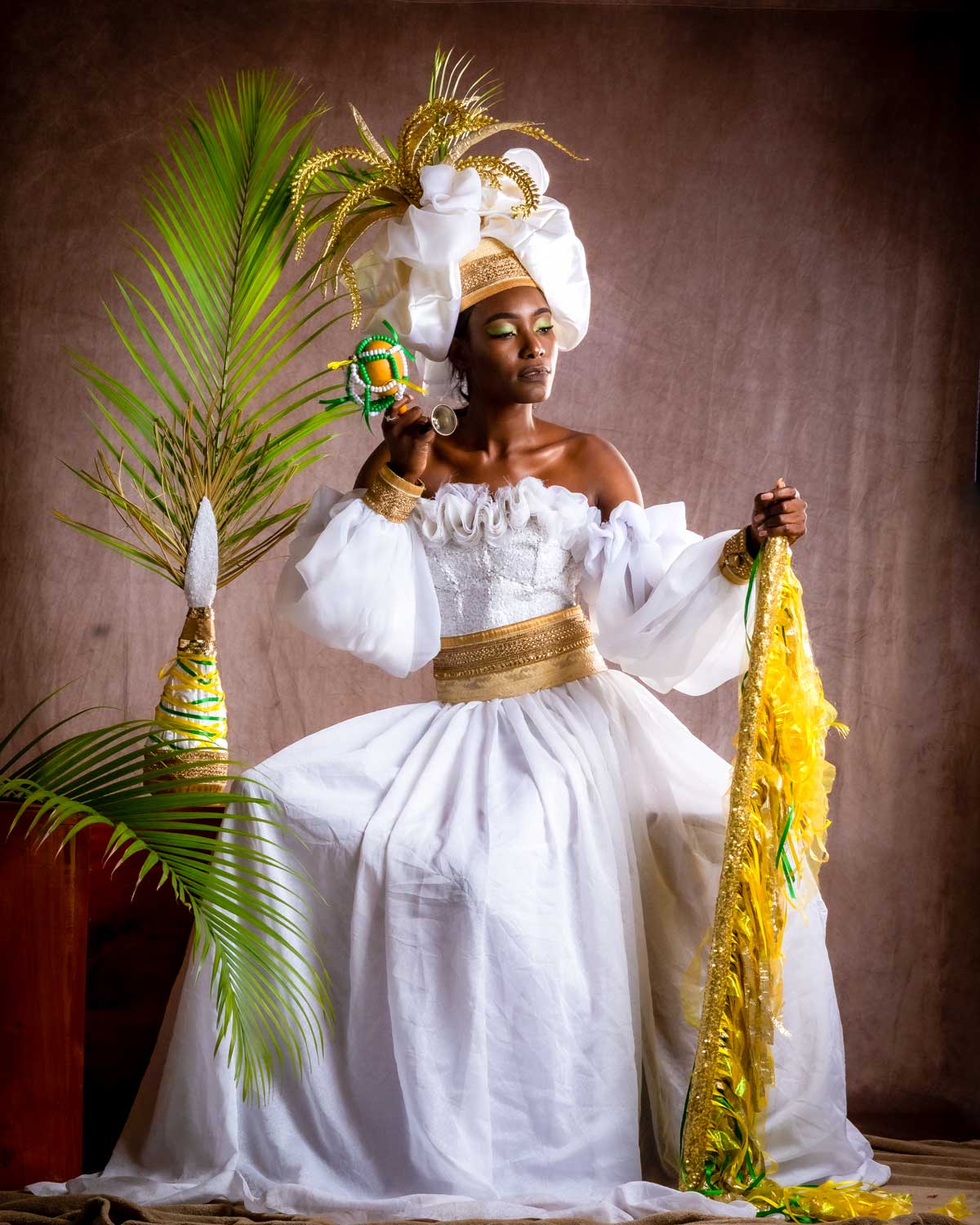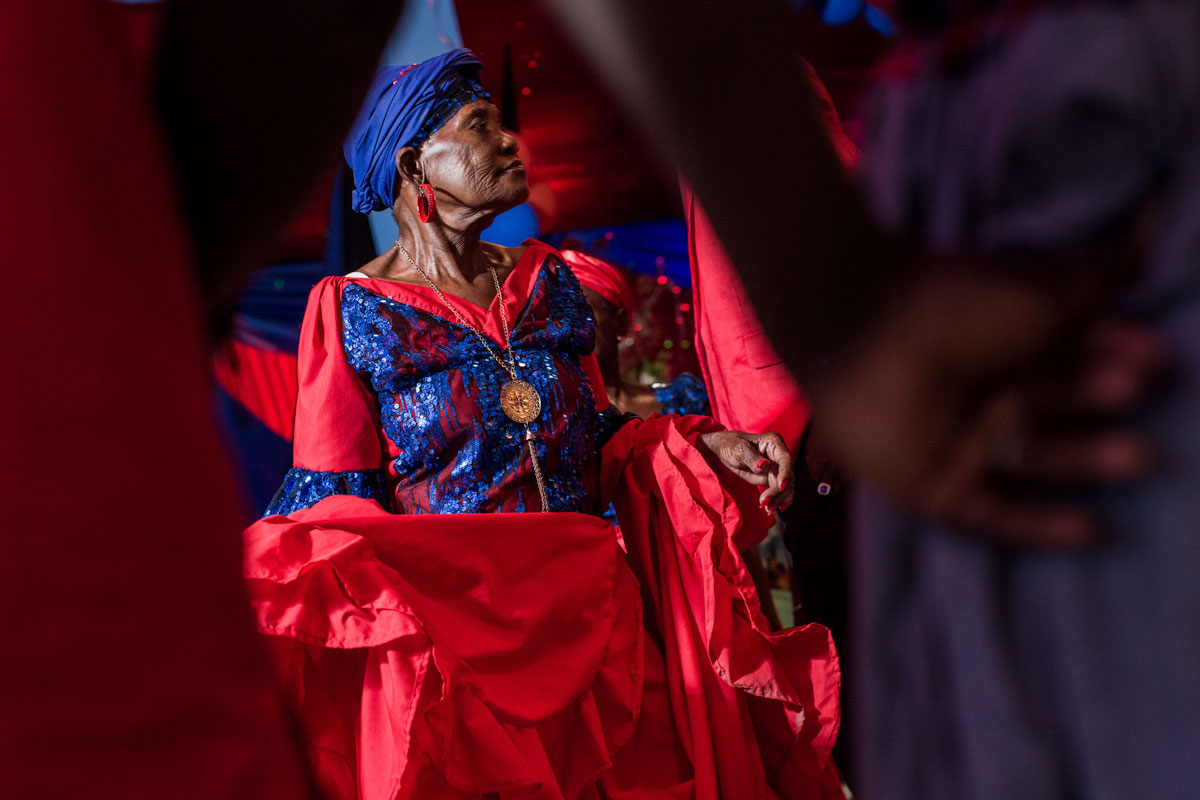Unraveling The Mystery Of Haitian Voodoo Cats: More Than Just Folklore
Table of Contents
- The Whispers of Haitian Culture and Cats
- Cats in Vodou: Beyond the Stereotypes
- The Spiritual Significance of Feline Friends
- Understanding Vodou: A Glimpse into Beliefs
- The Role of Vodou Priests and Practitioners
- Protecting Haitian Heritage: Language and Lore
- Common Questions About Haitian Voodoo Cats
- Embracing the Richness of Haitian Traditions
The Whispers of Haitian Culture and Cats
Have you ever wondered about the intriguing connection between Haitian culture and its fascinating feline companions? It's a topic that often sparks curiosity, sometimes even a little misunderstanding, and it's quite a timely one, as we approach the middle of May 2024. People frequently ask about the idea of "Haitian Voodoo Cats," and it's a concept that truly deserves a closer look, especially when you consider the rich tapestry of beliefs that make up Haitian Vodou. It's, you know, much more than just a simple phrase.
For someone like me, with deep roots in Haitian heritage—my mother is Haitian, and my father is African, from Cameroon, so I feel a very strong connection to the continent—the nuances of this culture are quite personal. It's a culture that, you know, has been shaped by so much history, so many stories passed down through generations. The way people think about animals, especially cats, in Haiti, is often tied into this very spiritual framework, and it's not always what you might expect from popular portrayals, which can be a bit misleading, to be honest.
We're going to explore what "Haitian Voodoo Cats" really means, moving past any preconceived notions to appreciate the genuine place these animals hold in Haitian spiritual life. It's a chance to really understand, in a way, the depth of Haitian Vodou and how it views the natural world, including our four-legged friends. This discussion, you see, aims to shed some light on a subject that is often, perhaps, shrouded in mystery for many.
- Doc Gooden Now
- Scott Cawthon Is Dead Meme
- Bruce Pearl Coaching
- Erin Andrews Naked In Hotel
- Scuba Girl Asu Leaks
Cats in Vodou: Beyond the Stereotypes
When people hear "Haitian Voodoo Cats," they might, you know, picture something from a movie or a book, something a bit dramatic or even, arguably, scary. But the actual place of cats within Haitian Vodou is far more subtle and, frankly, quite beautiful. Cats are not typically seen as direct conduits for curses or dark magic, as some stories might suggest, which is a common misinterpretation.
Instead, they often symbolize various things, much like in other cultures around the world. In Vodou, animals, generally speaking, can sometimes be messengers or have their own spiritual significance. It's not about cats being inherently "voodoo" in a negative sense, but rather how they fit into a broader spiritual worldview that values all life, which is a pretty important distinction to make.
The concept is, in some respects, more about the perception and interpretation of these creatures within a belief system that is deeply connected to nature and the spirit world. It's a nuanced topic, and it really helps to appreciate the complexity of Haitian Vodou itself. You see, the reality is usually, you know, much richer than the simplified tales.
- Why Did Keebler Change The Name Of Grasshopper Cookies
- Woealexandra Onlyfans Leaks
- Foley And Lardner
- Android 18 Soles
- Laura Ingraham Contact
Cats, with their quiet ways and their ability to move silently, are often seen as creatures of mystery in many parts of the world. In Haiti, this natural mystique can, you know, blend with spiritual beliefs. They are often just part of the household, living alongside families, and their presence is simply accepted as part of the daily rhythm of life. There's nothing particularly sinister about them, which is that, a key point to remember.
It’s important to remember that Vodou, at its core, is about balance and connection. It’s about living in harmony with the spirits and the natural world. Cats, like other animals, are simply part of this larger, interconnected system. They are, you know, creatures of Bondye, the supreme creator, just like humans, and they have their own place in the grand scheme of things.
So, when we talk about "Haitian Voodoo Cats," it’s less about a specific magical practice involving felines and more about how these animals are perceived within a deeply spiritual culture. It’s about the respect and awareness of their presence, and how their characteristics might be seen to align with certain spiritual ideas. This perspective, you know, really changes the whole picture.
The Spiritual Significance of Feline Friends
So, what exactly do cats represent in Haitian Vodou? Well, cats are often seen as independent creatures, quite observant, and they tend to move between worlds, almost, with a quiet grace. These qualities, you know, can be interpreted in spiritual contexts. They might be viewed as having a connection to the unseen, or perhaps as guardians of a home's spiritual well-being, which is a pretty comforting thought for many.
It's not uncommon for animals to be linked to specific Lwa, or spirits, in Vodou, though cats don't have one single, universal association. Their symbolism can vary a bit, depending on the specific tradition or even the individual practitioner's experience. You might hear stories, for example, of a cat appearing at a significant moment, and that, in a way, could be seen as a sign or a message, almost like a subtle nudge from the spirit world.
This connection is deeply rooted in the everyday lives of Haitian people, where spiritual beliefs are, you know, interwoven with daily existence. It’s a very organic relationship, not a forced one, and it shows how the natural world plays a part in their spiritual understanding. The presence of a cat, for example, might be seen as a sign of good fortune or protection for a household, particularly if the cat exhibits certain behaviors.
Some people, you know, might believe that cats have a special sensitivity to spiritual energies, perhaps sensing things that humans cannot. This isn't unique to Haitian Vodou; many cultures around the world hold similar beliefs about cats. It’s about their perceived intuition and their often mysterious nature, which is that, quite captivating.
The idea is not that cats are possessed by spirits, but rather that they exist within a world where spirits are always present. Their quiet presence can be a reminder of this spiritual dimension. They are, you know, just part of the natural flow of life, and their characteristics are simply observed and given meaning within the Vodou worldview. This is, arguably, a very respectful way of looking at the animal kingdom.
In some contexts, a cat's presence might be interpreted as a sign of a Lwa's presence or influence, not because the cat *is* the Lwa, but because the Lwa might choose to make its presence known through subtle signs in the environment. It’s a very symbolic way of thinking, pretty much, and it requires a deep understanding of Vodou's spiritual language.
Understanding Vodou: A Glimpse into Beliefs
To truly grasp the idea of "Haitian Voodoo Cats," it's helpful to understand Haitian Vodou itself. It's a vibrant, incredibly rich spiritual tradition that came to be in Haiti, blending West African religious practices with elements of Roman Catholicism, which is that, a result of the transatlantic slave trade. It's not, you know, a singular, monolithic religion; there are different branches and ways it's practiced, pretty much like Christianity has different denominations.
Vodou focuses on a supreme, distant creator, Bondye, and a pantheon of spirits called Lwa. These Lwa act as intermediaries between humanity and Bondye, and they govern various aspects of life, nature, and human experience. People communicate with the Lwa through rituals, offerings, and possession, seeking guidance, healing, or help with life's challenges. It’s a very active and engaged form of spirituality.
The tradition is, actually, very much about community, healing, and maintaining balance with the natural and spiritual worlds. It's a far cry from the sensationalized portrayals you sometimes see, which often, you know, miss the true depth and positive aspects of the practice. These portrayals, honestly, tend to focus on the more dramatic or misunderstood elements, rather than the everyday spiritual life of practitioners.
Vodou is a living religion, constantly evolving, yet deeply rooted in its history. It provides a framework for understanding the world, coping with adversity, and celebrating life. It's a system of belief that emphasizes respect for ancestors, the environment, and each other. This holistic view is, you know, quite central to its practice.
The Lwa are diverse, each with their own personality, preferences, and domains. Some Lwa are associated with water, others with fire, some with love, others with justice. Practitioners build relationships with these spirits, seeking their wisdom and support in navigating the ups and downs of life. It’s a very personal and communal spiritual journey, in a way.
So, when we talk about cats within Vodou, it's always within this larger context of a complex and meaningful spiritual system. It's not about isolated superstitions, but about how every part of existence, including animals, fits into a cohesive worldview. This understanding, you know, is key to appreciating the true nature of Haitian Vodou.
The Role of Vodou Priests and Practitioners
In Haitian Vodou, spiritual leaders play a really important part. These are the Vodou priests (Houngan) and priestesses (Mambo). They are, you know, highly respected figures in their communities, serving as spiritual guides, healers, and keepers of tradition. My own experience, actually, reminds me of this; I recall hearing about someone who needed a Vodou priest because she didn't know how to perform a particular ritual herself, which shows just how essential these practitioners are.
These priests and priestesses are the ones who, you know, facilitate communication with the Lwa, lead ceremonies, and provide spiritual counsel. They have a deep understanding of the rituals, the songs, the drum rhythms, and the various symbols used in Vodou. It's a lifetime of learning and dedication, pretty much, passed down through generations of oral tradition and practice.
When it comes to animals, including cats, a Vodou priest might interpret their behavior or presence within a spiritual context, offering guidance based on their knowledge of Vodou lore. It's all part of a larger system of belief and practice that, arguably, brings comfort and meaning to many. They are the ones who can, you know, truly explain the subtle meanings behind various occurrences.
These spiritual leaders are also responsible for maintaining the integrity of Vodou practices, ensuring that rituals are performed correctly and respectfully. They serve as a bridge between the human world and the spirit world, helping people navigate their spiritual paths. Their role is, you know, quite central to the community's well-being.
The training to become a Houngan or Mambo is extensive, involving years of study and initiation. It's not something one simply decides to do overnight; it requires a genuine calling and a deep commitment to the spiritual path. This dedication ensures that the traditions are preserved and passed on accurately, which is that, incredibly important for the community.
So, if there's any question about the spiritual significance of a cat or any other animal in a Vodou context, it's the Vodou priest or priestess who would provide the authoritative interpretation. They are the custodians of this sacred knowledge, and their guidance is, you know, highly valued by those who practice Vodou.
Protecting Haitian Heritage: Language and Lore
Understanding Haitian culture, including its views on animals like cats in Vodou, really means appreciating its language: Haitian Kreyòl. This language is, you know, so much more than just a way to communicate; it's a direct link to the soul of Haiti. It's basically French spoken with Fon grammar, and it truly embodies the unique history and resilience of the Haitian people, which is a pretty remarkable thing.
For someone like me, who grew up speaking Haitian Kreyòl, I can tell you, it's a language that, in a way, opens up so many doors to understanding the culture deeply. There's a whole community, for example, like r/haitiancreole, where people share their love for the language and help each other learn. "Vini pale kreyòl ayisyen avèk nou!" (Come speak Haitian Kreyòl with us!) is a common invitation, and it highlights the warmth and openness of the culture, which is, you know, quite welcoming.
The stories and lore surrounding "Haitian Voodoo Cats" and other aspects of Vodou are, very, passed down through this language. It's through Kreyòl that the subtle meanings, the proverbs, and the nuances of these beliefs are preserved and shared. So, you know, learning the language is really a pathway to understanding the full richness of Haitian traditions. It's, arguably, the most authentic way to connect with the culture.
My own father, being Haitian, didn't teach me Kreyòl when I was young, and it meant I missed out on some of the cultural nuances early on. This experience, you know, just emphasizes how vital language is for transmitting culture and understanding its deeper meanings. It’s a connection that, honestly, many people cherish.
The beauty of Haitian Kreyòl is that it reflects the creativity and adaptability of the Haitian people. It's a language born of necessity and resilience, and it carries within it the echoes of African languages and French. This linguistic blend is, you know, a testament to the unique identity of Haiti.
So, when you hear about concepts like "Haitian Voodoo Cats," remember that the fullest understanding often comes from engaging with the culture
- Andraya Carter Body
- Cosmic Crisp Apples
- Covington Tn Football
- Rhea Ripley Nude Real
- Cavaliers Vs Nuggets

Haitian Culture Voodoo

Haitian Culture Voodoo

Haitian Culture Voodoo